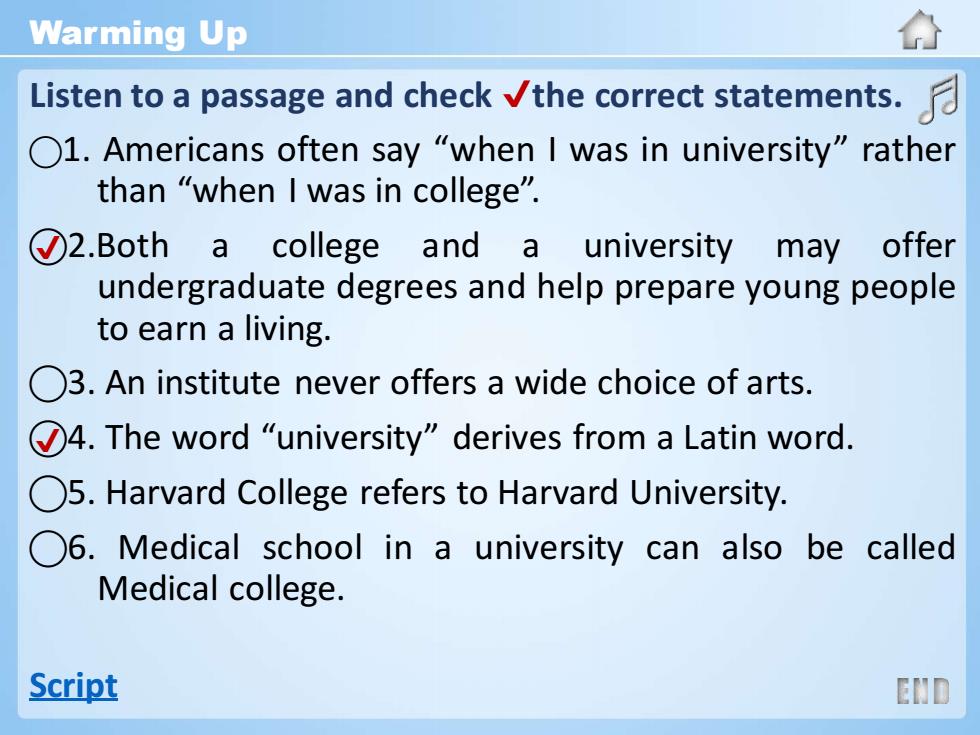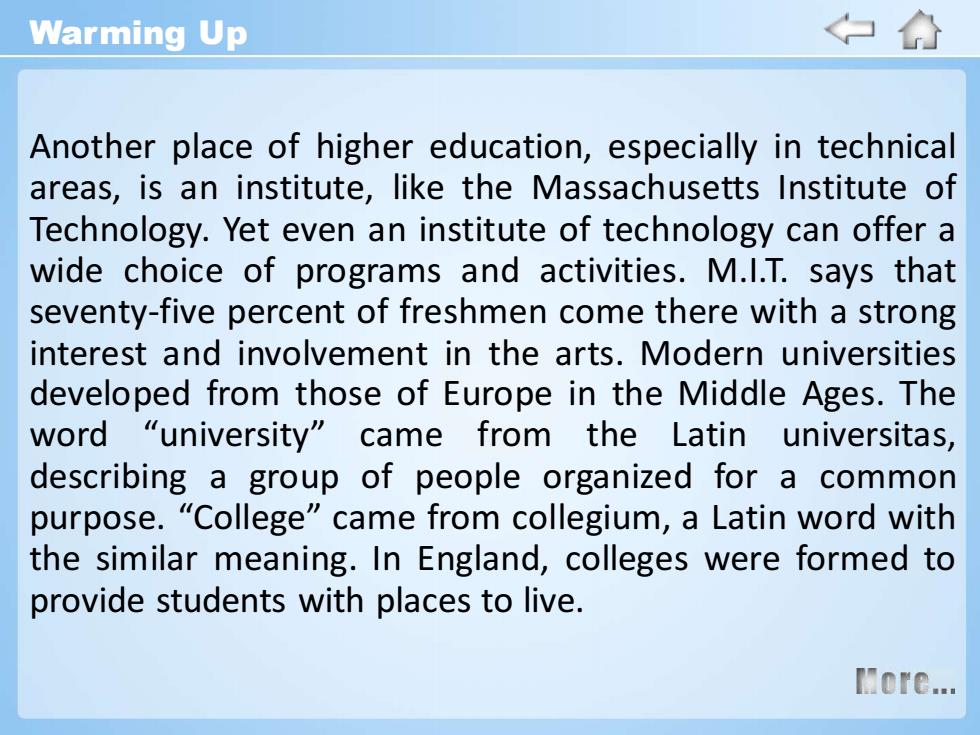
NE山sNPR COLLEGE ENGLISH 第二版8N 综合教程 Real Communication An Integrated Course 圈NNU南东作克大等 制作 《以外语改学怎研究出版社 版权所有

Contents Warming Up 2 Text 3 Words Phrases 4 Language Points 5 Exercises 6 Extension Activities o元ctive Rgading2
Contents Active Reading 2

Warming Up Listen to a passage and check /the correct statements. O1.Americans often say "when I was in university"rather than "when I was in college". 2.Both a college and a university may offer undergraduate degrees and help prepare young people to earn a living. 3.An institute never offers a wide choice of arts. 4.The word "university"derives from a Latin word. 5.Harvard College refers to Harvard University. 6.Medical school in a university can also be called Medical college. Script END
Listen to a passage and check ✔the correct statements. ⃝1. Americans often say “when I was in university” rather than “when I was in college”. ⃝2.Both a college and a university may offer undergraduate degrees and help prepare young people to earn a living. ⃝3. An institute never offers a wide choice of arts. ⃝4. The word “university” derives from a Latin word. ⃝5. Harvard College refers to Harvard University. ⃝6. Medical school in a university can also be called Medical college. Script Warming Up ✔ ✔

Warming Up Script Americans use the term "college students"to mean students either in colleges or universities.Not only that, Americans almost never say "going off to university"or "when I was in university."That sounds British.Instead, they say "going off to college"and "when I was in college." College,university:what's the difference?Colleges and universities have many things in common.Both offer undergraduate degrees in the arts and sciences,for example.And both can help prepare young people to earn a living.But many colleges do not offer graduate studies. Another difference is that universities are generally bigger. They offer more programs and do more research. Mere
Warming Up Script Americans use the term “college students” to mean students either in colleges or universities. Not only that, Americans almost never say “going off to university” or “when I was in university.” That sounds British. Instead, they say “going off to college” and “when I was in college.” College, university: what’s the difference? Colleges and universities have many things in common. Both offer undergraduate degrees in the arts and sciences, for example. And both can help prepare young people to earn a living. But many colleges do not offer graduate studies. Another difference is that universities are generally bigger. They offer more programs and do more research

Warming Up Another place of higher education,especially in technical areas,is an institute,like the Massachusetts Institute of Technology.Yet even an institute of technology can offer a wide choice of programs and activities.M.I.T.says that seventy-five percent of freshmen come there with a strong interest and involvement in the arts.Modern universities developed from those of Europe in the Middle Ages.The word "university"came from the Latin universitas, describing a group of people organized for a common purpose."College"came from collegium,a Latin word with the similar meaning.In England,colleges were formed to provide students with places to live. More
Warming Up Another place of higher education, especially in technical areas, is an institute, like the Massachusetts Institute of Technology. Yet even an institute of technology can offer a wide choice of programs and activities. M.I.T. says that seventy-five percent of freshmen come there with a strong interest and involvement in the arts. Modern universities developed from those of Europe in the Middle Ages. The word “university” came from the Latin universitas, describing a group of people organized for a common purpose. “College” came from collegium, a Latin word with the similar meaning. In England, colleges were formed to provide students with places to live